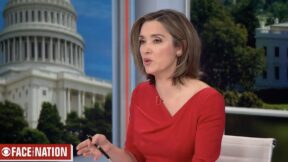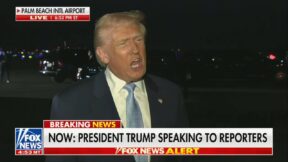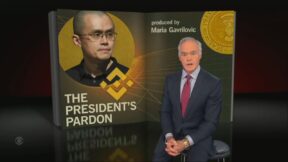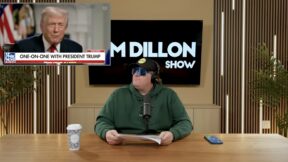’34 Verdicts!’ CNN’s Elie Honig Breaks Down Different Ways Trump Jury Could Reach Unanimity on Charges
CNN legal analyst Elie Honig broke down some of the different possible scenarios as to what kind of a verdict the jury in Donald Trump’s porn star hush money trial might return.
“An hour and a half in, what’s it like in the room with jury deliberations going on?” asked CNN anchor Boris Sanchez as the jury considered the charges.
“It’s tense. It’s nerve-wracking because you don’t know anything. Here’s what’s happening now. The judge has given the jury their final instructions. Took about an hour this morning. And now what’s happening is these 12 people are alone in a room. There’s no court reporter, there’s no judge, there’s nobody else. The alternates have been split off in case of emergency,” Honig replied, adding:
Now, juror number one is the foreperson. In a lot of courts, the first thing the jury does is elect a foreperson. But, in New York state court, it automatically is juror number one. There’s no magic powers associated with the foreperson. That’s who will communicate with the judge. And usually, that’s who will lead the deliberations. Now crucial point, they have to be unanimous to reach a verdict. Guilty has to be 12-0. Not guilty has to be 12-0. Anything other than that 11-1, 6-6. That is not a verdict. Now they’re working off the indictment which we know charges of falsifying business records in the first degree.
Now there’s 34 different counts of this. And I want to make this point because it’s really important the jury is going to return not a verdict but 34 verdicts. They’re going to have to consider each count 11 invoices, 12 vouchers, 11 checks separately. And it’s possible we see a split verdict. It’s possible they find guilty on 20. Not guilty on the remaining 14. One possibility that I just want to flag. It is possible if the jury wants to split it. Nine of the checks are signed directly by Donald Trump himself. So if they do end up splitting it, it could be that they split along that, those nine counts, perhaps guilty, the rest not guilty.
Sanchez followed up after Honig continued explaining jury procedures, noting, “This is a historic case to the question of the jury potentially being stuck.”
“All the potential charges we get reporting earlier in the day that the defense team, Trump’s team, was concerned about a potential Allen charge, which would potentially come back from Judge Merchan if the jury tells him, hey, we’re stuck. They’re concerned that the Allen charge may lead to some of the holdouts that don’t want to convict Donald Trump to compromise and then that would create a scenario in which they would split charges. How realistic is that?” Sanchez asked.
“Oh, Allen charges absolutely happened. If we get a note saying we’re stuck at a certain point, the judge doesn’t just say, okay, that’s it, everyone go home. Then the judge brings out the heavy artillery and says, okay, folks, it is your job, if humanly possible, to work together to reach unanimity,” Honing replied, adding:
It’s your duty if you can get there. And if you don’t do it. By the way, jury, we’re just going to have to do this all again with the next jury. It works. Not always, but a lot of times it can break a deadlock. And Boris, I just want to anticipate a question that’s on the mind probably of a lot of viewers. Yeah. When? right. Well I mean it’s obvious when we don’t know.
But I’ll just tell you my personal experience. I’ve seen juries come back in one hour. We’re already past that mark. I’ve seen I hate to say this. I’ve seen a jury take eight full days of deliberation. So we don’t know. They’re not told how long they’re expected. This is the sort of black box of our criminal justice process. We don’t know what happens in that room. We’ll get little hints here and there, and then we will probably see a result at some point.
Watch the clip above via CNN.




